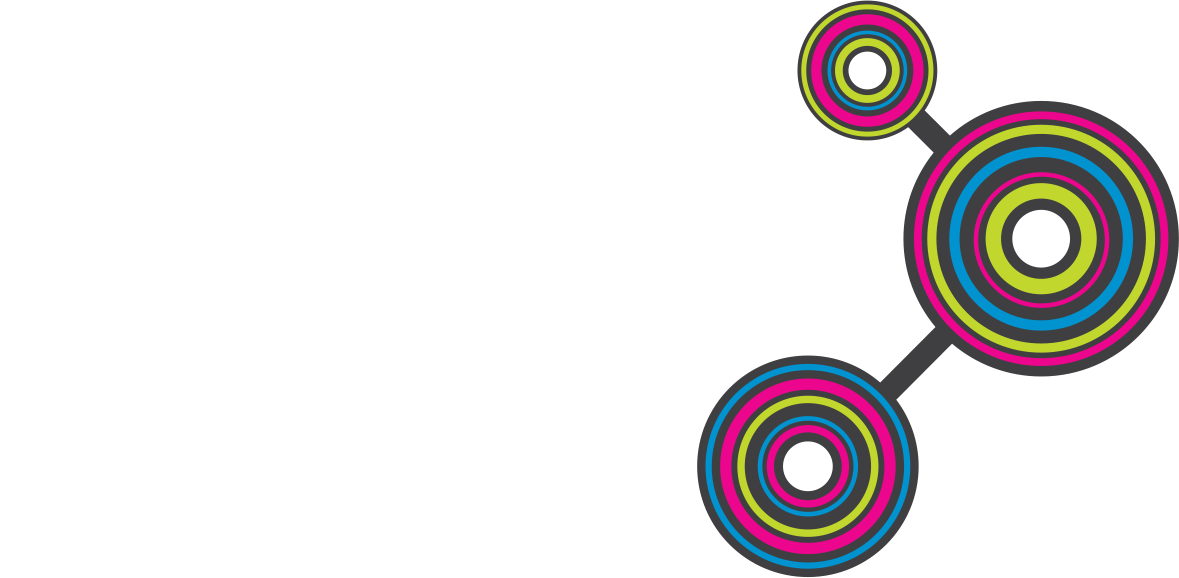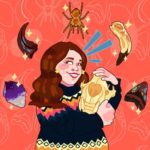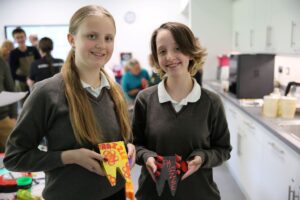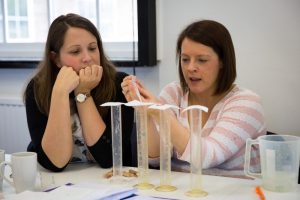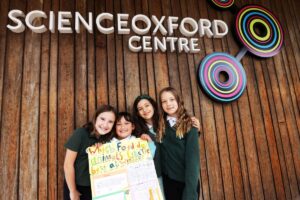A not completely alive Live Lab session
Tuesday 10th May 2022
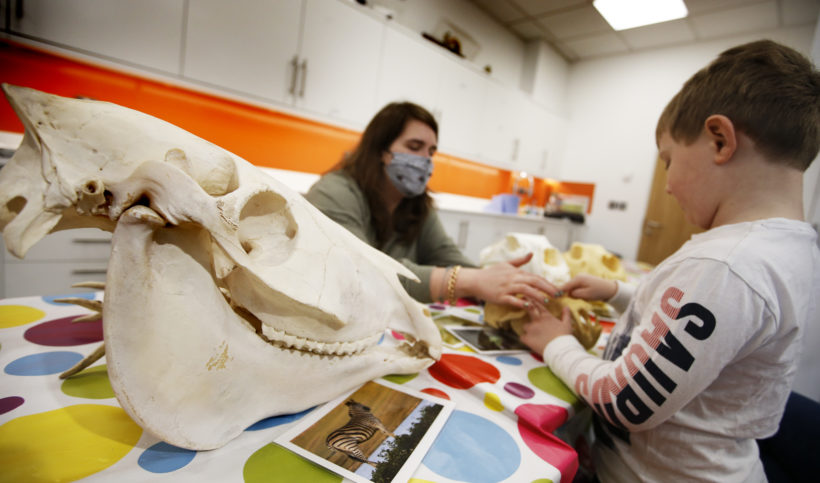
If you visit the Science Oxford Centre for a Family Day this summer, you just might see something unusual. Our pop up ‘Live Lab’ is an interactive space where families get to meet a scientist, student or researcher – or one of our expert team. Children can try out mini experiments from real world tech and scientific research; activities have included investigating bacteria, kitchen science with cabbages and extracting strawberry DNA, with fun takeaway ideas to try at home. The programme has been developed as part of a ‘Public Engagement with Research’ partnership, and is funded by the Evolution Education Trust.
Oxford Brookes University PhD student, Leah Fitzpatrick (pictured) brought along her collection of mammal skulls during the holidays. Her display encouraged children to engage with lots of good discussion, from guessing the ‘Odd One Out’ to comparing a lion to a domestic cat and a surprise reveal! Families really enjoyed the session and commented:
“Lots of great questions that made us think.”
“Lovely to meet a real scientist.”
“We’ve seen people in all sorts of museums and she was right up there with the best.”
Read on to find out more about Leah’s Live Lab experience…
“When my 21st birthday came around, my parents asked if there was anything special I would like as a gift to mark the milestone event. I had just started my final year of my Zoology undergraduate degree and was thinking about how exactly I wished to apply my degree – so with that in mind, I asked for the money to buy a zebra skull.
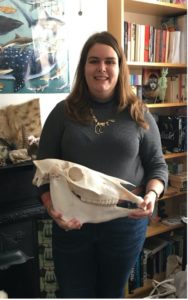
I really honestly love learning and what I love even more is sharing that knowledge – being able to pass along to the new dazzling fact or help articulate how to follow a certain analytical method and watch it just suddenly click for someone is absolutely magic. For most of my life, I just thought it would be a useful aspect of my personality that would get people to enjoy science but not completely viable as a career option.
Then, when I was 18, I became a Learning Volunteer at the Natural History Museum in London. I was pulled into the world of public engagement at a time I needed it most – I was failing my A-Levels and knee-deep in self-loathing – so volunteering helped me to see myself more positively. I used specimens from the museum to grab visitors’ attention and then run through an activity, from classifying different types of minerals, comparing fossil animals to living relatives or just allowing visitors an opportunity to examine and discuss a mammal skull at length. To be able to apply my enthusiasm into something structured, that could be enjoyed by any visitor, left me feeling on a high every Saturday, that even delays on the District line coming home couldn’t put a dampener on!
It was the highlight of my week and when I realised that I would be able to still just sneak under the travel allowance when I started university, I found I had a solid excuse not to join folks in going completely wild on a Friday evening (at least Thursday was still an option!). University offered its own opportunities and the confidence I had gained from my experience volunteering made me chase after them – I even gave a TEDx talk with the university on creativity in museums, inspired by my time at the museum. It was when a friend pointed me in the direction of £750 grant the university offered for student development in 2016 that I realised I was ready to strike out on my own. Through replica skull sellers in the UK (primarily the excellent CrimsonRichDesire, based in Scotland), I now had my own person collection for outreach.
I lovingly bundled up the skulls and took them to science fairs in Cambridge, libraires in Central London and even had the opportunity to do my own museum outreach at the Sedgwick Museum with my skulls. My collection now stands at a healthy 50 different specimens including a giant fossil shark tooth, a replica polar bear skull (my 25th birthday present!) and a horseshoe crab (nicknamed affectionately as ‘Prehistoric Pete’).
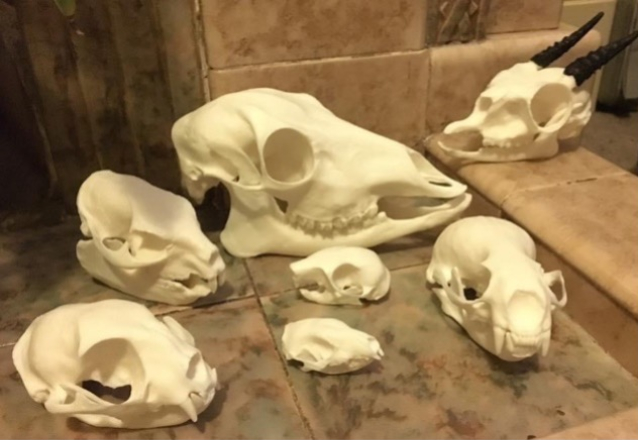

It was coming back to volunteering through Oxford Brookes University, working in tandem with the lovely Mike Dennis on putting together a hands on skull activity for the Live Lab, that made me realise how much I had missed it through COVID. I have absolutely loved my sessions so far at the centre and it has helped remind me enormously of why I want to carry on doing research.
Currently I am working towards getting a PhD with Oxford Brookes University, focusing on slow lorises, their evolution and their conservation. If you’d like to chat skulls, public engagement or slow lorises, check the Science Oxford website to see when I’ll be next in on Live Lab. I look forward to meeting you.
Check our website for news of Live Lab summer events.
NHM Learning Volunteer programme: @NHM_Learn
Brookes Public Engagnment: @ScienceBazaar
Live Lab programme funded by:

